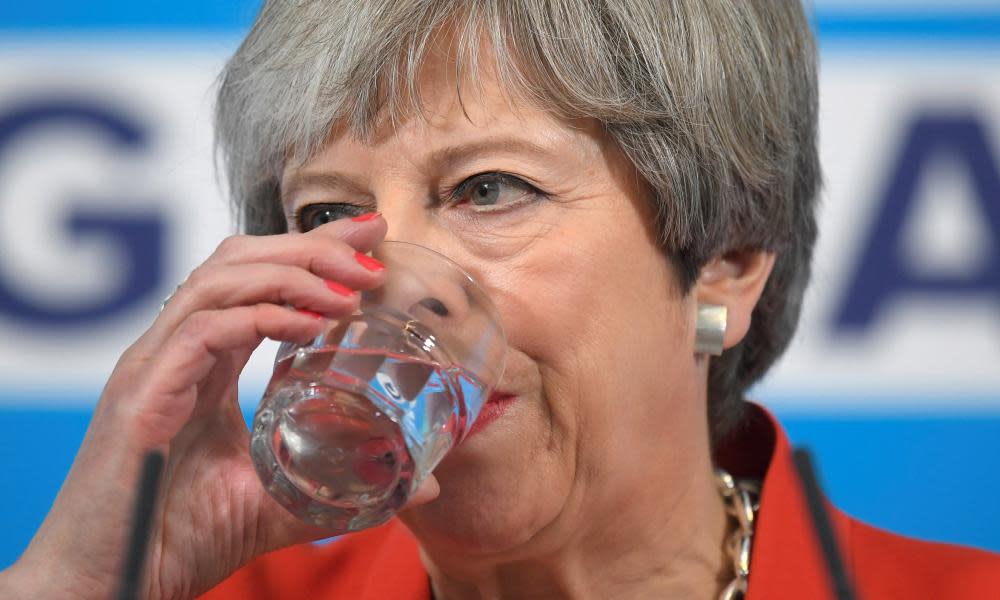The Guardian view on the social care debacle: weak and wobbly | Editorial

Never, in the long history of election manifestos, has a party done a U-turn on a proposal that has already been included in its offer to the electorate. Sir David Butler, who has covered every general election since 1950, used his new Twitter account to declare it unprecedented. A manifesto is set in stone, a sales pitch to voters that becomes a mandate for the exercise of power.
But on Monday morning the unprecedented happened. Three torrid days after her “dementia tax” had been unveiled, Theresa May roared into a U-turn on it. There would, after all, be a cap on how much any individual would have to pay. The principle, she insisted to widespread scepticism, was unchanged. This was a mere extra detail. But in fact the plan now looks very like Sir Andrew Dilnot’s plan, endorsed by the Conservatives at the last election, and dismissed only last Thursday. This is all Mrs May’s own work.
Team May surely weighed the howls of rage at their proposal against the damage that a reverse would do to the core “strong and stable” message, and decided it would be worth it. The three days had culminated in a five-point rise in Labour’s standing; the Guardian’s latest poll confirms the weekend surveys were not outliers.
But the damage to that “strong and stable” message will be deep and lasting. For example, it is now clear that there was no proper consultation despite the radical departure proposed in a highly complex policy area. On the day of the manifesto launch, the health secretary, Jeremy Hunt, denounced a cap as unfair to taxpayers. On Sunday, in the midst of the crisis, the work and pensions secretary, Damian Green, insisted in an interview that it would not be amended. The foreign secretary, Boris Johnson, suggested to another interviewer that it should be. The upshot is that the consequences of Mrs May’s style of doing business, playing her cards close and failing to consult, are now evident for all to see. That will worry Tory candidates, who after a torrid weekend on the doorstep will already be nervous about her judgment, and make them more likely to challenge her themselves in the next parliament. In Brussels, Michel Barnier and Jean-Claude Juncker will be watching and learning. And voters will be left wondering what happened to the leader who claimed to get on with the job with calm competence.
This made-at-home disaster says something else about the election: the Tories are confident they’ve won it. They see it as a moment to get out some difficult measures. This was a flawed policy, but it was an attempt to address an urgent crisis in social care, cheaper than the cost of implementing the Dilnot proposals, which capped individual liability for care costs, leaving the taxpayer to pay the difference. It was a big future spending commitment likely to fall into a post-Brexit economy, and it was generous to people who had already done well out of inflated house prices and big pensions. But social care is in crisis now; by 2019/20 the cash shortfall will be £2bn. The various bungs thrown at it – the power to levy an extra 2% on council tax, some more emergency funding – are inadequate. The election victory already banked, Mrs May’s inner circle put forward a policy that – by tapping into property wealth – might have a progressive appeal while reinforcing the key message that they were on the side of the less well off.
Instead, the “strong and stable” party has added another U-turn to its already remarkable list of U-turns, which include abandoned budget changes to national insurance for the self-employed, and the repeated denials of election plans. Not so strong and stable, more weak and wobbly.

 Yahoo News
Yahoo News 
